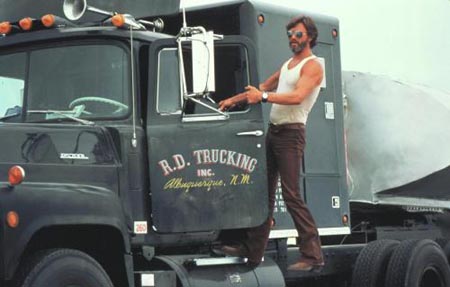The passage below from Rachel Nuwer’s BBC report about technological unemployment speaks to why I largely disagree with Jerry Kaplan that robotics will be far worse for male workers than female. There probably will be a difference, but if the machines come en masse in a compressed period of time, they come for most of us.
Oxford’s Carl Frey tells Nuwer that “overall, people should be happy that a lot of these jobs have actually disappeared,” when speaking of drudgery that’s heretofore been vanished by electrical gadgets, but the new reality may mean a tremendous aggregate improvement enjoyed by relatively few. In the long-term, that may all work itself out, but we better be ready with solutions in the short- and medium-term.
The excerpt:
Self-driving trucks wouldn’t be good news for everyone, however. Critics point out that, should this breakthrough be realised, there will be a significant knock-on effect for employment. In the US, up to 3.5 million drivers and 5.2 million additional personnel who work directly within the industry would be out of a job. Additionally, countless pit stops along well-worn trucking routes could become ghost towns. Self-driving trucks, in other words, might wreck millions of lives and bring disaster to a significant sector of the economy.
Dire warnings such as these are frequently issued, not only for the trucking industry, but for the world’s workforce at large. As machines, software and robots become more sophisticated, some fear that we stand to lose millions of jobs. According to one unpublished study, the coming wave of technological breakthroughs endangers up to 47% of total employment in the US.
But is there any truth to such projections, and if so, how concerned should we be? Will the robots take over, rendering us all professional couch potatoes, as imagined in the film Wall-E, or will technological innovation give us the freedom to pursue more creative, rewarding endeavours?•
Tags: Carl Frey, Rachel Nuwer

